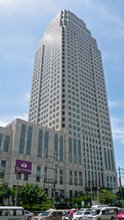The National Economic and Social Development Board (NESDB) has lowered its estimate of economic growth for this year to 4 to 4.5 per cent from its earlier forecast of 4 to 5 per cent, due to the slowdown in consumer spending.
The revision came after gross domestic product (GDP) in the first quarter grew by 4.3 per cent compared to 4.2 per cent in the same period last year, NESDB secretary-general Ampon Kittiampon said.
Driven by exports and government spending, first-quarter growth was better than originally expected.
He added that oil prices, the general election and construction of the electric train routes would have an influence on the economy. The growth revision resonates with earlier forecasts of the Finance Ministry and the Bank of Thailand. While the central bank revised its growth forecast to 3.8 to 4.8 per cent, the Finance Ministry forecast growth of 4 per cent in 2007.
However, Finance Minister Chalongphob Sussangkarn said yesterday that the latest economic figures indicated that GDP growth may reach 4.5 per cent by the year's end, thanks to better-than-expected performance in many sectors.
However, many of the figures showed a continued slowdown from last year, since household spending in the first quarter expanded only 1.3 per cent compared with 2.5 per cent in the previous quarter.
Overall investment contracted 1.4 per cent compared with a growth of 2.4 per cent in the fourth quarter of last year because private investment contracted 2.4 per cent compared with a 2.3 per cent growth in the previous quarter.
Unemployment was still low at 1.6 per cent compared with 1.9 per cent in the same quarter the year before.
However, the economy is still under pressure from oil prices, which were higher than the original forecast. Average oil prices in the Dubai market were likely to rise to US$60 (Bt2,076) to $64 a barrel, compared to the original forecast of $55 to $60.
The NESDB's revision comes after last week's decision by the Constitution Tribunal to dissolve the Thai Rak Thai Party of ousted premier Thaksin Shinawatra, which sparked concerns of unrest.
Ampon said that if the general election could be held on schedule and the government could disburse 93 per cent of its total budget according to the target, consumers would regain their confidence to spend.
"Consumer spending, which has declined since last year, is likely to remain weak for the rest of the year while private investment has remained under pressure," he said.
The inflation rate dropped to 2.4 per cent from 3.3 per cent in the first half of last year.
There was still a trade deficit of US$5.5 billion, although there was a sign of more imports in April.
Ampon said public debts as at the end of March stood at Bt3.21 trillion, or 38.10 per cent of GDP, down from 40.48 per cent as at the end of December last year.
International reserves at the end of April stood at $71.7 billion.
The NESDB forecast the inflation rate would stay at 2 to 2.5 per cent this year, while the current account and trade surpluses would be $8.5 billion and $7.7 billion respectively.
Exports are projected to be $144.1 billion, up 12.4 per cent, while imports would be $136.4 billion, up 8.3 per cent. Private and state investment are expected to expand 1.5 per cent and 4 per cent respectively.
Meanwhile, HSBC Markets (Asia) expects GDP growth to be around 3.8 per cent for 2007. It said in its research that overall the numbers, even if slightly better than expected, did not change its view that domestic demand was continuing to weaken, warranting further rate cuts in the second half of the year.
Citibank Global Markets said that the better-than-expected first-quarter growth of 4.3 per cent lowered the downside risk to its GDP growth forecast of 4.7 per cent in 2007.
It said: "The cumulative 150bps policy rate cut since January and the forthcoming fiscal bias to spend aggressively should provide a lift to the domestic economy and markets in the second half of this year when exports may switch to low gear. However, the upward momentum in the second half will likely be gradual as the healing process for durable goods spending, particularly real investments, should be lacklustre.
"As long as the political rift remains unresolved, the long-term private spending component of GDP should fall short of potential."


No comments:
Post a Comment